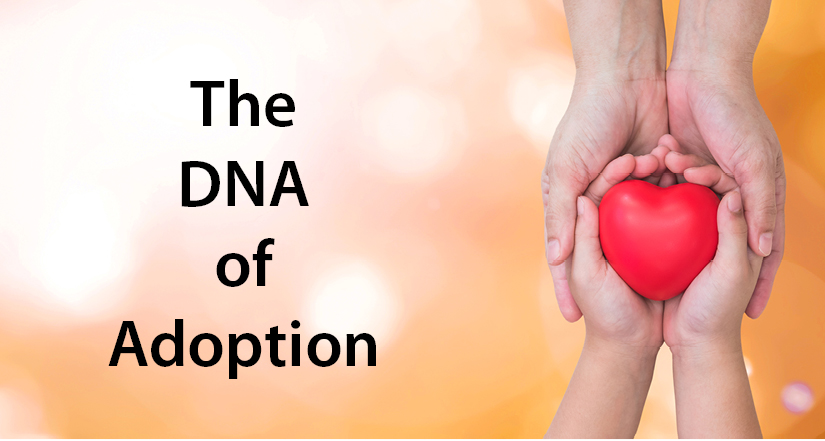
Adopting comes naturally to Christians. It runs in our blood and dwells in our DNA. Christians invented the world’s first orphanages. Before Christianity, abandoning “unwanted” infants had become both permissible and popular in Roman and Greek society. Indian, Chinese, tribal African, and Native American civilizations also commonly committed infanticide. Not only did early generations of Christians succeed in opposing and outlawing these practices, they accepted foundlings into their homes, collected funds for their welfare, and established institutions (including the orphan trains of the pioneer United States) for their upbringing.
Adoption belongs to God’s “Plan A” for humankind. Of course, the Almighty Maker’s very good creation envisions procreating and parenting the offspring of one’s own body. However, even natural descent and nuclear family foreshadow a greater reality. God intended to unite Himself with those who did not share His substance. The Heavenly Father did not beget Adam and Eve. Instead He created their race by grace and claimed them for Himself entirely apart from any obligation. He assembled them as created beings but adopted them as family.
And He intertwined adoption into the identity of His Old Testament Israelite people. The Lord bound Abraham to Himself not by blood but by covenant. With a promise He adopted him—and his posterity (Romans 9:4)—out of obscurity and idolatry. Moses’ adoption in Pharaoh’s household brought about the exodus of Israel from Egyptian oppression. He even named the Hebrews His “firstborn son” (Exodus 4:22), although His body had not birthed any of them. Compassion and assistance for orphans, widows, and aliens then permeated His conversation with them through the Law’s instructions and the Prophets’ exhortations.
Finally, with Jesus, the divine family planning reaches its completion. This Gospel has adoption at its heart. Joseph takes Mary’s baby for his own (Matthew 1:24-25), and man adopts the God who had already long ago adopted him. Jesus insists on welcoming little ones He Himself had not sired, and He calls it nothing less than the very kingdom of God (Mark 10:14-15). The Father forsakes His Only Begotten Son (Matthew 27:46) to forgive and reconcile those disconnected from Him (Luke 23:34). Lone Son becomes as one disowned, atones, and makes outsiders heirs.
So, He bids the beloved disciple embrace Mary as his own mother. Likewise, He invites the dear woman to adopt this one as a son she’d never had (John 19:26-27). Jesus had come unto His own, and His own received Him not. But to all who did receive Him by believing in His name, to them He gave the right to become real children of God—born not of blood or flesh or will of man (John 1:12-13) but of water, Word, and Spirit (John 3:3-5).
The Lord our God does not replace birth with adoption. Instead He incorporates both into the better status of Holy Baptism (Galatians 3:26-4:5). This sacramental identity obliterates any distinction between the two. No member of heaven’s household says, “I was begotten” or “I was adopted.” Each and every one proudly proclaims, “I am dear daughter” or “I am beloved son.” All bear the name of Father, Son, and Holy Spirit. And this confession now eclipses even one’s genetics, “For whoever does the will of my Father in heaven is my brother and sister and mother” (Matthew 12:50).
We rejoice not only to own this grace ourselves but also to enact it unto others. It energizes us to receive every child as gift and privilege—and to regard none, not even those proceeding from our own bodies, as rights or possessions. We hold adoption as a holy vocation, a labor of God Himself. Rather than reserving it exclusively for those struggling under infertility, He extends this opportunity to any Christian home.
Adoption offers servanthood to children in need and their birth parents, even if it sometimes fulfills one’s own longings as well. And it comes with costs for the biological mothers and fathers, for the adopting ones, and for the kids themselves. But it also brings the great blessings with which Almighty God has invested it.